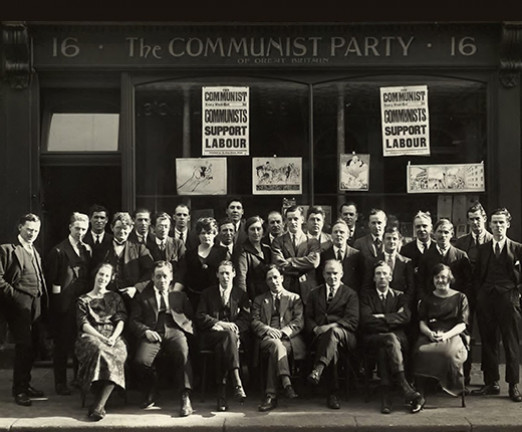
Political Programmes of British Communism, 1944–1990

Papers of various Communist Party commissions
Britain will reach socialism by her own road… the people of Britain can transform capitalist democracy into a real Peoples Democracy1951 edition.
Access the full collection
Access the full archive of Political Programmes of British Communism, 1944–1990.
Institutional Free Trial
Start your free trialRegister for a free 30-day trial of Political Programmes of British Communism, 1944–1990, for your institution.
Institutional Sales
Visit Sales PagesellFor more information on institutional access, visit our sales page.
Already have a license? Sign in.
Study the complex "British Road to Socialism" programme

The Communist Party of Great Britain (CPGB) created several commissions that aimed to construct political programmes in response to social, political, and economic developments in Britain and the Soviet Union. This collection hosts the papers of several commissions that sought to redraft the Party’s flagship political manifesto: The British Road to Socialism. This was first published in 1951 with the personal approval of Joseph Stalin. It became a key battleground between various factions of the CPGB that sought to control the direction and agenda of the Party.
The collection also contains material from other Party commissions that wrestled with issues such as democracy in Britain, class unity, and the structure and organisation of the Party. This collection offers a look into how communist plans to reshape Britain evolved over time.
The collection also contains three contextual essays written by Professor Kevin Morgan.
Contents
Political Programmes of British Communism, 1944–1990...
Papers of various Communist Party commissions
Discover
Highlights

Licensed to access The first “British Road to Socialism” with press reaction, 1950–1951
This document includes the final copy of the initial The British Road to Socialism, the CPGB’s first programme since For a Soviet Britain in 1935. The document also contains newspaper cuttings which demonstrate how The British Road was received by commentators across the political spectrum.

Licensed to access “Comment” correspondence on the "British Road" redraft, 1977
This document details factional disputes through correspondence and submissions from grassroots CPGB members regarding the updated version of The British Road. This occurred as the infighting between "Eurocommunists" and "Tankies" over the direction of the Party intensified.

Licensed to access Materials on factionalism surrounding the “Inner-Party Democracy Commission”, 1979
In the wake of a fierce debate at the National Congress, members were left to unpack the impact of the report produced by the Inner-Party Democracy Commission on factionalism and the structure of the Party.

Licensed to access Final draft of the “Manifesto for New Times”, 1989
The Manifesto for New Times was a controversial document. It sought to detach the CPGB’s political programme from its Marxist-Leninist roots. The Manifesto signalled the victory of the "Eurocommunist" faction, who oversaw the transformation of the CPGB into the Democratic Left in 1991.
Insights
The first six volumes offer extensive material related to the various redrafting processes undertaken by the CPGB on their official programme: The British Road to Socialism.
As division between “Eurocommunists” and "Tankies" grew, the various redrafting processes of The British Road became battlegrounds for the soul of the Party. Both sides wanted this programme to reflect their respective values.
“Eurocommunists” eventually won control of the Party's apparatus. They transformed The British Road into the Manifesto for New Times, which all but abandoned the CPGB’s Marxist-Leninist roots.
The “Commission on the Middle Classes” examined the prospect of uniting the middle classes and working classes around a common anti-capitalist programme.
The Commission for a “Declaration on Democratic Rights” took aim at the perceived democratic deficit in Britain and gave thought as to how this situation could be improved.
Due to increasing factionalism, various Commissions on “Party Organisation”, “Inner-Party Democracy”, and “Congress Organisation” were set-up to consider ways of improving the internal political structures of the CPGB.
Unlock Historical Research for Your Institution
Provide your students and researchers with direct access to unique primary sources.
Related Media


Notable Individuals of the Communist Party of Great Britain Contextual Essays







